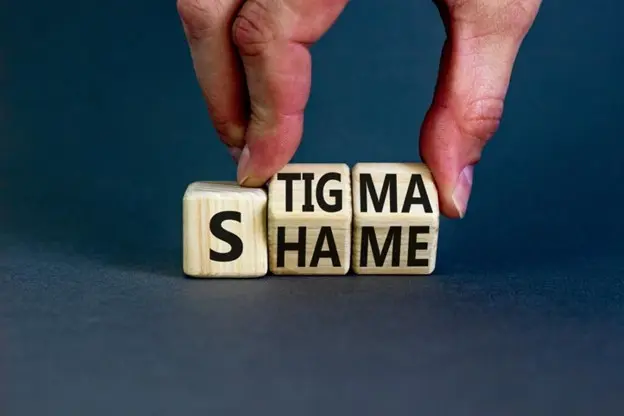Addiction is a multifaceted and deeply personal struggle that affects countless individuals and families. However, the stigma surrounding substance use disorders can be a significant barrier to seeking help. At North Ward Behavioral Health Center, we understand the complexities of drug use disorders and the profound effect they may have on one’s life. As such, we aim to reduce this stigma and create an environment where individuals feel safe and encouraged to take the first step toward healing.
Our treatment for addiction includes cognitive behavioral therapy, counseling services, and other proven ways of addressing a broad variety of mental and behavioral conditions. If you or someone you know is battling with drug and alcohol dependence, our team is ready to provide compassionate care and support.
What is Substance Abuse Disorder?
Substance use disorder (SUD) is a complex mental illness condition characterized by an uncontrollable urge to use substances such as alcohol, drugs, or other addictive behaviors despite harmful consequences. This disorder affects the brain’s reward system, leading to intense cravings and compulsive use that can disrupt daily life and relationships.
People with substance use disorder often develop a tolerance, requiring larger amounts of the substance to achieve the desired effect and experience withdrawal symptoms when not using. The condition is marked by an inability to stop using the substance, persistent efforts to cut down or control use, and significant time spent obtaining, using, or recovering from the substance’s effects.
SUD can lead to various other health conditions, such as physical ailments, and can increase the risk of contracting infectious diseases. t is essential to recognize that SUD is a medical condition, not a moral failing, and requires comprehensive treatment, including counseling, medication, and support services, to help individuals achieve and maintain recovery.
Addiction Stigma and Its Many Forms
Stigma is a significant obstacle that prevents many individuals from seeking help for substance use disorders. Many people feel ashamed or fear judgment from others, which can prevent them from reaching out for the support they need. The stigma surrounding substance abuse often stems from misconceptions and societal judgments, leading to discrimination and isolation for those affected. This negative perception can manifest in various forms, including social stigma, public stigma, and self-stigma.
Social and Public Stigma
Social stigma acts as a heavy weight on those struggling with substance use disorders. It manifests in negative attitudes and beliefs held by society, creating a landscape of misunderstanding and fear. Public stigma forms the most visible layer of this web.
It manifests in discriminatory practices and policies, making it difficult for individuals to access the resources and support they desperately need. Public stigma might make them fear losing their job or housing or facing social isolation if their condition is revealed. This fear can be a powerful deterrent, preventing them from seeking the help that could turn their life around.
Self Stigma
Beneath the surface lies self-stigma, a crippling weight that individuals internalize. When bombarded by negative societal messages about addiction, they may begin to believe those messages themselves. Feelings of shame and worthlessness can take root, hindering their motivation to seek help and fostering a sense of hopelessness. This internalized stigma can become a self-fulfilling prophecy, making them less likely to challenge their addiction and build a path toward recovery.
The Broader Impact of Structural Stigma
Stigma can influence public policy and funding for addiction treatment and mental health services administration. When addiction is viewed as a moral failing rather than a medical condition, it becomes challenging to advocate for the necessary resources and support for those affected. Changing this narrative is crucial for creating a more compassionate and effective approach to addressing substance abuse and mental illness.
Changing the Narrative Around Drug Addiction & Mental Health
To reduce the stigma of addiction, we must change the way we talk about and understand substance use disorders. Language plays a powerful role in shaping perceptions and attitudes. Using terms that emphasize the medical nature of addiction, such as “substance use disorder” instead of “drug abuse,” can help shift the narrative from one of blame to one of compassion and support.
Educational initiatives aimed at increasing awareness about the realities of addiction can also play a significant role in reducing stigma. By providing accurate information about the causes, symptoms, and treatment of substance use disorders, we can challenge misconceptions and promote a more empathetic perspective. This involves highlighting stories of recovery, showcasing the effectiveness of treatment, and emphasizing that addiction is a treatable condition.
How Healthcare Providers Can Reduce Stigma
Healthcare providers have a critical role to play in reducing the stigma of addiction. At North Ward Behavioral Health Center, we prioritize creating a non-judgmental and supportive environment for our patients. By treating substance use disorders with the same seriousness and respect as other medical conditions, we can help normalize the experience of seeking help for addiction.
Training healthcare professionals to recognize and address their own biases is also essential. This includes understanding the ways in which stigma can affect patient outcomes and learning to provide care that is respectful, compassionate, and free from judgment. By fostering a culture of empathy and support within healthcare settings, we can make it easier for individuals to seek and receive the help they need.
Supporting Loved Ones Through Addiction
If you have a loved one struggling with drug and alcohol dependence, your support can make a significant difference in their recovery journey. Educating yourself about addiction and the challenges of substance use disorders can help you provide informed and compassionate support. It’s important to approach your loved one with empathy, listen without judgment, and encourage them to seek professional help.
Avoid using stigmatizing language or behaviors that may reinforce feelings of shame or guilt. Instead, focus on expressing your concern and offering to assist them in finding the resources they need. Remember that recovery is a long and often difficult process, and your ongoing support and encouragement can play a crucial role in their success.
Our Drug Treatment Programs & Public Health Advocacy
One of the most significant steps in reducing the stigma of addiction is encouraging individuals to seek help. Substance use disorders are treatable, and recovery is possible with the right support and resources. At North Ward Behavioral Health Center, we offer comprehensive addiction treatment services designed to address the unique needs of each individual. Our team of experienced professionals provides personalized care, including counseling, medical treatment, and behavioral therapies, to help patients achieve and maintain sobriety.
Through our Community Health Outreach Program (CHOP) and partnerships with local organizations, we also advocate for public health initiatives and a national drug control policy that promotes addiction treatment and recovery. We believe that everyone deserves access to quality care, regardless of their background or financial status.
Contact Us Today for Holistic, Judgement-Free Care
If you or someone you know is struggling with addiction, it’s essential to reach out for help. The sooner you seek treatment, the better the chances of a successful recovery. Remember that asking for help is a sign of strength, not weakness and that you are not alone.
Contact us today to learn more about our addiction treatment and mental health services. Together, we can reduce the stigma of addiction and support a healthier, more compassionate community.

